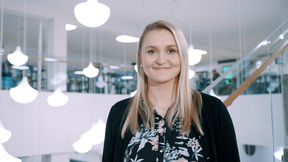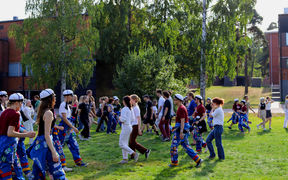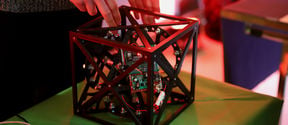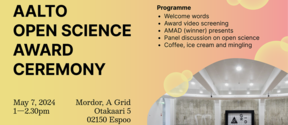Iita Kejonen is involved in recycling battery metals from electric cars: ‘By working in industry, I can influence the development of the entire field’

How did you end up studying chemical engineering?
‘Ever since I was young, I have been interested in a little bit of everything, both at school and with hobbies. After upper secondary school, I had no idea what I wanted to do, and I didn’t want to rule out any possibilities or lock myself in one job for the rest of my life. I thought that one thing I wouldn’t be was a technology student.
After upper secondary school, I decided to apply to the School of Business, where I studied for about a year. But when I was there, I realised that I wanted more concrete substance expertise in some field. I felt that it would be difficult to create something like technological innovations with a purely economics degree. Several of my family members are Masters of Science in Technology, so eventually it felt natural to apply to study materials science and engineering.’
What was studying like?
‘At Aalto University, I was completely swept away by the student community. I felt like I fit in, and even after graduation, I have attended annual events organised by our student association for the entire guild community, including us alumni.
During my studies, I also noticed how widely this field offers areas of specialisation. It was nice to see that my education opens up many doors. I still don't know what I’ll be when I grow up.’
What kind of work have you done in your career?
"I started my career at Metso Outotec, where I worked for about 10 years. Being a social and talkative person, I quickly ended up in sales there. My strength is working with people: I’m at my best when I am facilitating workshops and talking to customers. Thanks to my education, I’m also able to have in-depth conversations about technology in sales situations, even if I’m not the best technical expert on the topic.
At the moment, I am working as a technology manager at AFRY, where I manage metal and mineral production projects, such as designing battery recycling plants or new concentration plants. The work is really versatile: we examine the costs and impacts of new plants, everything from infrastructure to eagle’s nests. Our customers include mineral concentration plants and metal refineries around the world.’
Why is your work important?
‘In 2035, all new cars and vans sold in the EU have to be zero-emission. So in practice, we need a huge number of new electric cars that require battery materials, like different kinds of minerals. In addition, you need a significant amount of metals for the construction of new wind turbines and solar panels, for example, and it is important to produce these metals as sustainably as possible.
In my work, I design plants where these raw materials are produced and recycled. We need to be able to recycle and reuse metals and battery materials better than we do now, otherwise they will run out. In my work, I am involved in enabling the circulation of materials.’
What kind of career skills did you gain by studying materials science and engineering?
‘My degree in materials science and engineering has given me a broad understanding of mineral concentration, metal processing and their future significance. My studies gave me the skills to work in this diverse and interesting industrial field and to get involved in making important decisions.
Jobs and tasks vary greatly in this field as well. I’ve worked as a process expert and as a sales representative for comprehensive technology solutions, held presentations at international conferences and designed concentration plants and battery recycling facilities around the globe. I have also had the opportunity to travel to places that I would not have otherwise visited. Some of my friends from university work as metallurgical engineers, i.e. experts in the processes of this field, some are corrosion and material selection experts, consultants and sales representatives, all involved with circular economy in different ways.’
What would you like to say to young people considering their choices of study?
‘If you want to influence the direction our world is developing and how we can overcome things like climate change, this is a good field of study. Studying materials science and engineering opens up a path to versatile employment options, with a genuine opportunity to participate in what the industry of the future looks like. For example, there is a finite amount of minerals, so we need to learn how to utilise them better.
The metal industry is not exactly the flashiest sector, and many view it as a problem in terms of emissions. For example, many people oppose mines or smokestack industry. However, all types of emission-free energy production require a significant amount of metals, even rare ones. In fact, this field plays an important role in reducing climate emissions globally. By working in industry, you can best influence its development.’
Chemical engineering solves the biggest problems of our time
School of Chemical Engineering combines natural sciences and engineering to refine research results and put them into practice as sustainable innovations.

- Published:
- Updated:
Read more news

Camilla Hollanti elected as a member of Finnish Academy of Science and Letters
Camilla Hollanti leads a prominent research group on applications of algebra and number theory. The central topic of her research is to apply the methods of algebra and number theory to problems encountered in telecommunications. Applications include wireless communication.
Aalto ARTS alum Vidha Samya’s artwork featured at the Venice Biennale 2024
The Pavilion of Finland presents ‘The pleasures we choose’ at the 60th International Art Exhibition – La Biennale di Venezia until 24 November 2024.
IoT Forge donates EUR 1 million to the School of Engineering
The donation will be used for research and education on the Industrial Internet and digital twins.